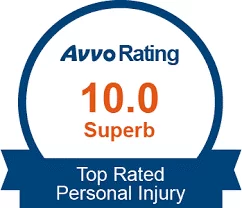The aftermath of a serious injury accident can last long after the settlement is reached or the trial ends. You’ll need plenty of patience as you continue to help your child and your family return to normal life. You’re also likely to encounter one or more bumps in the road. Let’s begin exploring some of these issues so you can be informed—and feel free to return to them later when you need a reminder.
What if my child has lingering psychological issues after the accident?
Trauma has a way of resurfacing in the mind over time—and trauma is exactly what your child experienced. I’m not a doctor and can’t give you medical advice, but you may want to seek professional therapy for your child to help him process these issues. That’s particularly true if you notice any symptoms—such as lingering nightmares, bedwetting, trouble in school and emotional issues.
Where can I find a good therapist for my child?
Admittedly, choosing the right therapist can be a daunting task, especially because your child is still in her formative years, and someone who is unskilled could potentially add to the damage. You might begin by asking your child’s pediatrician or surgeon for a recommendation. If you have any family or friends whose children have undergone therapy, ask about their experiences and whom they recommend. Local hospitals, charities, or your child’s school counseling department may also have some leads you can research. This article in Psych Central offers some practical advice to help lead you to an informed decision.
My child has to go through physical rehab. How can I help her through the process?
Ask your pediatrician or others who have been involved in your child’s case for a recommendations if you need help finding a good physical therapist.
Pediatric physical therapists use a variety of fun games, tools and techniques to make the process easier on children. However, physical therapy and rehab can, at times, be painful and stressful. You can help her by attending sessions with her, and remaining calm, firm and encouraging throughout the process.
My other uninjured children have had trouble dealing with their sibling’s injury. How can I help them process what happened?
When one member of a family gets hurt, all helping the family members feel the effects. If the injury was serious enough, of the other children’s psychological injury is substantial, you may want to consider professional help for them. But besides that, what tools can you give to help other children psychologically heal?
- Talk to the children. Be honest about what happened to your injured child and how you feel about it. Give the kids a chance to talk about it, as well, and answer their questions as best you can (they’ll probably have lots of questions).
- Give the kids opportunities to express themselves. One common therapy technique is to give children crayons and paper or toys so they can draw or “act out” what happened. This activity may help them process their feelings, and it may be a way to let you know what they’re thinking and feeling, when it’s too difficult to tell you directly.
- Spend time with the children. Your impulse is to spend all hours with your injured child, but your other children still need you. Once the immediate danger has passed, let someone else sit with your child in the hospital and take the other siblings for an outing or just to talk.
- Let the kids visit the hospital, if possible. Doing so will help the siblings cope with what happened, and it will also possibly boost your injured child’s morale.
- Give the children tasks to do. Just as you may have kept busy as a coping strategy, that may work for your kids, too. Don’t pile on if they’re overwhelmed, but if they’re feeling powerless, giving them chores or other responsibilities may help them retake a sense of control over their lives.
Should the siblings help my injured child as he recovers?
There is no one right answer here. It’s going to depend—particularly on the extent of the child’s injury, the children’s ages, and the others’ own experience with trauma. (For example, if two children were both in a car crash, but only one received major injuries, the uninjured kid may have a very different response, compared to a scenario where the other sibling was not involved in the accident.) And there are also many options in terms what help they can give. It could be helping with medical care or physical therapy, but perhaps it’s simply getting homework assignments at school. Reading or playing a game with their injured sibling. Helping out with housecleaning. But again, remember that all of the children are emotionally dealing with the situation; be mindful of everyone’s well-being.
My child has been absent from school for a long time due to her injuries. How can I help her re-acclimate?
Missing a good amount of school can definitely throw a wrench into a child’s recovery process, and, in the case of long-term injury, she may even have to repeat a grade. Keep the school informed about the status of her recovery. Depending on the nature of her injuries, there may be temporary disability programs or other initiatives that can help her—everything from tutoring, to extra time to complete assignments and more.
That said, beyond the academics, once the child is well enough to return to school, it will likely require some readjusting as she gets used to resuming her routine. She may have to field questions from her classmates; she might not be able to play on the playground like she once did; or she might get tired during the course of the day. The best way to help her cope is to be patient, and let her know it’s okay to take her time getting reacquainted with school life. In the meantime, she doesn’t need to be alone: You are there for her, along with other types of support that she may need.
What if I’m no longer married to the child’s mother or father? What special issues will I face?
In optimal situations, the fact that an injured child’s parents are divorced should have little or no bearing on the recovery process. However, few such situations are optimal. Many times, a divorced parent who doesn’t have custody may feel just as concerned for the child, but he feels a bit left out, or powerless to help.
If you are on relatively good terms with the child’s other parent, one of the best ways to help him cope is to let him share in the recovery process—to sit with the child, take time with the other siblings, run errands or anything else that might be useful. To whatever extent the divorced parent can help ease the burden, it can only help all of you.
Importantly, talk to your helping the family lawyer, to see if you should modify any aspects of your divorce settlement and/or court-approved parenting plans (such as visitation schedules or child support).
Contact an Experienced Atlanta Injury Attorney
If your child has been injured in a serious accident, you need a skilled attorney to help protect your child’s rights. Call Greathouse Trial Law at (678) 310-2827 for a free evaluation.


